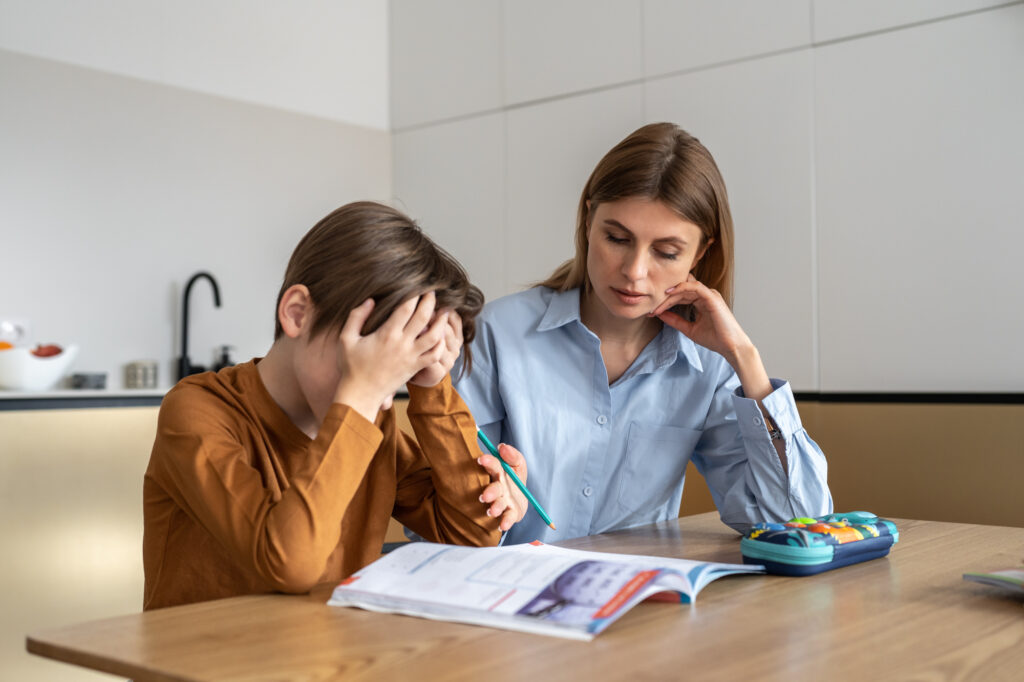As a parent, making decisions about your child’s health is never easy, especially when it comes to managing ADHD. One of the most common treatments is Adderall, a medication that can significantly improve focus and behavior in kids with ADHD. However, it’s natural to have questions and concerns about how it works, its safety, and potential side effects. This guide aims to provide you with all the essential information you need to make informed decisions about Adderall for your child, offering clear and compassionate insights into this treatment option.

What Is Adderall?
Adderall is a prescription medication often used to treat attention deficit hyperactivity disorder (ADHD) in children. It contains two main ingredients (amphetamine and dextroamphetamine), which are stimulants that help improve focus and control impulsive behaviors. When used correctly, Adderall can be an effective tool in managing ADHD symptoms, allowing children to concentrate better in school and at home.
How Does Adderall Work for Kids with ADHD?
Adderall in kids works by increasing certain chemicals in the brain, such as dopamine and norepinephrine. These chemicals help improve attention, organization, and impulse control. For many children with ADHD, this medication can make it easier to follow instructions, complete tasks, and stay focused, which can lead to better performance in school and other activities.
Benefits of Adderall for Kids
Adderall can be beneficial for children with ADHD in several ways:
Improved Focus: Adderall for kids with ADHD helps children concentrate on tasks, making it easier to pay attention during class or while doing homework.
Better Behavior: Many kids experience reduced impulsivity and hyperactivity, leading to fewer disruptions at school and home.
Enhanced Learning Abilities: With improved attention, children can better absorb and retain information, which is crucial for their education.
Potential Side Effects of Adderall in Children
While Adderall can be helpful, it’s important to be aware of potential Adderall side effects in kids. These can vary from child to child and may include:
Loss of Appetite: Some children might experience a reduced appetite, which can affect their growth if not managed properly.
Sleep Problems: Adderall for children can sometimes make it difficult for kids to fall or stay asleep.
Stomachaches and Headaches: These are common side effects, especially when starting the medication or adjusting the dosage.
Mood Changes: In some cases, children may become more irritable, anxious, or experience mood swings.
It’s crucial to monitor your child’s response to Adderall and report any concerning side effects to your healthcare provider.
How to Manage Side Effects
If your child experiences side effects, there are strategies to help manage them:
Adjusting the Dosage: Sometimes, a lower dose can reduce or eliminate side effects.
Monitoring Diet: Ensuring your child eats nutritious meals can help maintain a healthy weight, even with a reduced appetite.
Establishing a Sleep Routine: Create a consistent bedtime routine to improve sleep quality, especially if your child is struggling to fall asleep.
Always consult with a doctor before making any changes to your child’s medication or routine.
Is Adderall Safe for Kids?
When prescribed and monitored by a healthcare professional, Adderall is considered safe for children with ADHD. It’s approved by the FDA for use in children aged six and older. If your child is getting close to transitioning to adolescence, it’s important to ask your doctor about ADHD medication for teens and whether any changes need to be made to your child’s mental health treatment plan. Remember, it’s essential to use it as directed and attend regular check-ups with your child’s doctor to ensure it’s working effectively and safely.
How Long Does Adderall Take to Work?
Adderall usually starts working within 30 to 60 minutes after taking it. The effects of immediate-release Adderall can last around 4 to 6 hours, while the extended-release version can last up to 12 hours. Your child’s doctor will decide which form is best based on their needs and daily routine.

How to Take Adderall Properly
Adderall should be taken as directed by your child’s doctor. Typically, it’s taken once in the morning with or without food. If your child is on an extended-release version, it should not be crushed or chewed, as this can alter how the medication is absorbed.
Can Kids Build a Tolerance to Adderall?
Over time, some children may develop a tolerance to Adderall, meaning it may not work as effectively as it once did. If you notice your child’s symptoms are returning or worsening, speak with their doctor. They may need to adjust the dosage or explore other treatment options.
Alternatives to Adderall
While Adderall for kids is a common treatment for ADHD, there are other options available:
Other Medications: Ritalin, Vyvanse, and Concerta are alternatives that may work better for some children.
Therapy: Behavioral therapy can help children learn coping skills and strategies for managing ADHD symptoms.
Lifestyle Changes: A balanced diet, regular exercise, and sufficient sleep can also support ADHD treatment.
When to Contact a Doctor
It’s essential to keep in touch with your child’s healthcare provider while they are taking Adderall. Contact the doctor if you notice any severe side effects, if the medication seems less effective, or if you have any concerns about your child’s health.
How Evolve Can Help
At Evolve Treatment, we understand the challenges parents face when navigating ADHD treatment options for their children. Our team of experienced professionals offers comprehensive support, providing individualized care plans that consider each child’s unique needs. We work closely with families to ensure the right treatment approach, whether it includes medication, therapy, or a combination of both. Our compassionate environment fosters growth, helping children with ADHD thrive and reach their full potential.
Ready to find the right support for your child? Contact Evolve Treatment today to learn more about how we can help guide you through every step of the journey.
How to Take Adderall Properly
Adderall should be taken as directed by your child’s doctor. Typically, it’s taken once in the morning with or without food. If your child is on an extended-release version, it should not be crushed or chewed, as this can alter how the medication is absorbed.
Can Kids Build a Tolerance to Adderall?
Over time, some children may develop a tolerance to Adderall, meaning it may not work as effectively as it once did. If you notice your child’s symptoms are returning or worsening, speak with their doctor. They may need to adjust the dosage or explore other treatment options.
Alternatives to Adderall
While Adderall for kids is a common treatment for ADHD, there are other options available:
Other Medications: Ritalin, Vyvanse, and Concerta are alternatives that may work better for some children.
Therapy: Behavioral therapy can help children learn coping skills and strategies for managing ADHD symptoms.
Lifestyle Changes: A balanced diet, regular exercise, and sufficient sleep can also support ADHD treatment.
When to Contact a Doctor
It’s essential to keep in touch with your child’s healthcare provider while they are taking Adderall. Contact the doctor if you notice any severe side effects, if the medication seems less effective, or if you have any concerns about your child’s health.
How Evolve Can Help
At Evolve Treatment, we understand the challenges parents face when navigating ADHD treatment options for their children. Our team of experienced professionals offers comprehensive support, providing individualized care plans that consider each child’s unique needs. We work closely with families to ensure the right treatment approach, whether it includes medication, therapy, or a combination of both. Our compassionate environment fosters growth, helping children with ADHD thrive and reach their full potential.
Ready to find the right support for your child? Contact Evolve Treatment today to learn more about how we can help guide you through every step of the journey.
FAQs About Adderall for Kids
Adderall is typically prescribed for children aged six and older, as it’s approved by the FDA for this age group. However, the decision to start medication should always be made with a healthcare professional, who will assess the child’s individual needs and symptoms.
Yes, Adderall may impact a child’s growth, particularly in terms of height and weight gain. Regular monitoring by a doctor can help track your child’s growth, and adjustments to the medication or dosage can be made if necessary.
Adderall can be safe for long-term use when monitored by a healthcare provider. Regular check-ups are essential to assess your child’s health, growth, and any potential side effects over time.
Adderall may interact with other medications, so it’s important to inform your doctor about all the medications your child is taking. This includes over-the-counter drugs, vitamins, or herbal supplements to avoid any potential interactions.
When taken as prescribed, Adderall is unlikely to cause dependency in children. However, because it’s a stimulant, there is a potential for abuse if not used correctly. It’s crucial to follow the doctor’s instructions and keep the medication in a secure place.
In terms of proper children’s Adderall dose timing, if your child misses a dose of Adderall, give it as soon as you remember, but avoid giving it too close to bedtime, as it may interfere with sleep. If it’s almost time for the next dose, skip the missed one and continue with the regular schedule. Never double up on doses.
Some doctors recommend “medication holidays,” where children take breaks from Adderall during weekends or school vacations to reduce the risk of side effects. Always consult your child’s doctor before making any changes to their medication schedule.


































































